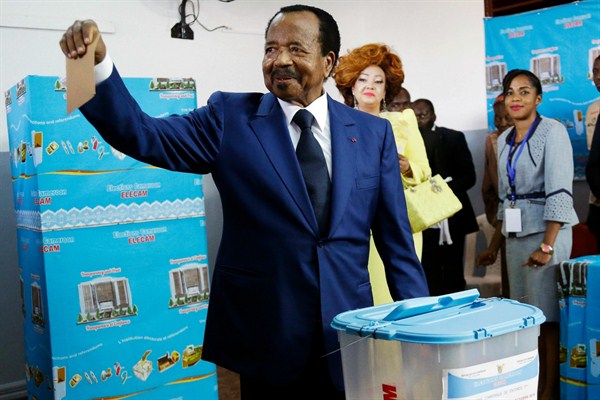Authorities in Cameroon are jailing opposition politicians and barring their supporters from holding rallies. Security forces and separatist groups continue to carry out atrocities in the country’s restive Anglophone regions. More and more civilians are being forced from their homes, adding to a tally of displaced people that already exceeds half a million.
These problems and more were cited in a speech delivered last week to the European Parliament by Federica Mogherini, the European Union’s top foreign policy official. Her words painted a picture of an increasingly volatile country, just six months after 86-year-old President Paul Biya coasted to reelection following a campaign in which he pitched himself as the only conceivable guarantor of stability.
Brussels isn’t alone in sounding the alarm. African and Western diplomats and human rights groups, to say nothing of observers within Cameroon, have become more vocal in denouncing conditions under Biya, who appears to have interpreted his reelection as an invitation to become even more aggressive in targeting his opponents.

